|
Most fundraisers have to travel for at least some portion of their time. My daughter (now 7) was very spirited and attached to me. So, I didn't travel without her until she was 3 and a half. We are are very lucky because my husband is a stay-at-home dad and he was happy to travel with me to conferences a few times a year. Since we homeschool, they still travel with me quite a bit
Luckily, my son (almost 2) is a bit more independent and doesn't mind short-term separations. This means that I travel without my kids more and more these days. And it's important to me to keep connected to my kids when I'm on the road. Some days it's really tough because my schedule is packed, morning to night. Other times, I'm just exhausted from time changes and travel delays. Here are some quick ideas that have worked for me to stay connected with my kids when I'm on the road. 1) Facetime and Skype This one is obvious but it wasn't that long ago that these tools weren't widely available. Now, they are available to use almost anytime and anywhere on your phone. I can call from the airport, hotel or even when I'm out and about. These tools are especially important for my son who is too small to talk on the phone or understand when I send messages in any other format. With my daughter, I get updates on what she did for school work and her current projects and with my son I mostly sing songs that we sing at home, etc. 2) Flower power My daughter and I have a thing that whenever she's not with me, I take pictures of beautiful flowers and send them to her dad (or sometimes grandmother) so she can see the flowers. But, really it is just a confirmation that she's continually on my mind and she gets to be a part of the trip. Beyond flowers, I also take pictures of anything that I think she would love to see or would find interesting. (Photo above was one of the pictures that I took and sent to my daughter while I was in Boston today.) I took a trip this week and she got 5-6 flower pictures, a picture of a replica ship from the Boston Tea Party, and a picture of the pastry cases in a fabulous cannoli shop. 3) Souvenirs If your kids are like mine, they have ENOUGH knickknacks. Our fridge isn't magnetic and I can't abide the idea of trying to keep a snowglobe from breaking in my luggage. So, we have a few preferred types of souvenirs: pencils (that she can use for her schoolwork and be reminded of our travels), patches (which we sew on her travel backpack), and educational books or coloring books. Do you have travel rituals that keep you connected with your kids when you are doing work travel? Any additional good ideas for the little kids?
0 Comments
 When I was 22 years old, I got my first professional fundraising position. The philosophy of the organization was to hire new college grads who were smart, enthusiastic and cheap! Then, they basically threw us into a ton of job situations that we weren’t fully prepared for. It was a stressful, sink-or-swim situation and eventually was a major reasons why I left this job. I’m so very grateful for the time I spent there. Surprised? Don’t be. I would like to make a case for being deep in the job chaos. This is where you learn the most and grow both as a professional and a person. I planned a national convention, led a database conversion, started an internship program and I did all those things at the same time. When I left at age 24, I had gotten more experience than I would likely have in ten years at any other organization. Embrace the job chaos. Try to ride the wave and think of how much you’ll be prepared to put on your resume. You’ll have so many stories to reference in future job interviews. Use the wide range of experiences like a menu to decide which tasks you truly like and those that you don’t. Then you’ll know for sure what area you want to pursue with more depth in your next position. Although it never seems like it at the time, the chaos is a gift. Take advantage of it. How are your public speaking skills? It’s an important skill in any business but in fundraising, it’s essential. Fundraising is about communicating vision through relationships. Sometimes this relationship building happens one-on-one or in small groups. But, more often than not, you are in situations which require you to speak in front of a medium to large group. This can manifest as donor recognition event, fundraising events, board meetings, volunteer training sessions and conference presentations.
If your job doesn’t require much in the way of public speaking from you, find a place to practice. Write a presentation for your local Association of Fundraising Professionals chapter. Send in a proposal to present at the next Council for the Advancement and Support of Education district conference. Join your local Toastmasters group. The more you practice, the better you will get. Practicing your skills as a public speaker will pay dividends for your career and for your organization. Everyone has their own process for preparing and practicing. For me, I begin with an extended outline. I put it all into Powerpoint, trying to use more images than words. I keep the wordy outline as notes for me. I like to extemporize during a presentation somewhat. I’ve never been one for reading from a text. So, closer to the actual event, I shut my office door and run through the entire presentation standing up at full vocal power. (In dance, they call this doing it “full-out”.) I fully visualize my audience and anticipate questions that they may have. I also try to insert as much humor as possible. The other practical tip I have in this area is to focus on your posture. The impact of excellent posture on public speaking cannot be overstated. Your posture is the root of both your voice and your confidence, both essential to getting your message across. It’s not just about standing up straight. It’s about relaxing in the right areas and the position of the chin. Good posture is about opening the chest to vulnerability while standing on a firm foundation. The biggest personal benefit you will get from more public speaking experiences is more confidence. No matter whether I nailed it or bombed, every speaking gig I’ve ever done has ultimately built my confidence. If you mess up, you learn more about what not to do. If you nail it, well, you confirm your awesomeness.  Chronicle of Philanthropy The gold standard for philanthropy and fundraising jobs. I find it a bit frustrating that you have to select individual states in order to limit your search geographically but we can forgive that small frustration. If you are serious about growing your career, check this job bank regularly. (PS - I found out about my current position on this site.) Chronicle of Higher Education Pretty much the same as the Chronicle of Philanthropy, but specific to higher education. If you don't mind combing through or scrolling past lots of faculty positions, this is another great source. CASE Job Board The Council for the Advancement and Support of Education is the trade organization for higher education fundraisers, alumni relations, and communications/marketing folks. Their job bank is pretty good as most colleges and universities recognize it as a go-to place for higher education advancement professionals. AFP Job Board The Association of Fundraising Professionals website is super-clunky, but if you want to work for a smaller non-profit, arts organization or hospital, AFP's job bank is just the right place to search for that kind of a position. Higher Ed Jobs.com This site has done some significant upgrades since the last time I looked at it. They now have the capability to search by administrative area, which means you can restrict your search to just development and fundraising. There's also a nifty feature allowing you to search by region or metropolitan area. Nice! Individual Institutions pages Keep a short document with a list of institutions you would love to work for one day and copy their Human Resource job bank link into that document. Set a reminder in your calendar to check those at a regular interval (determined by your urgency to change jobs). Some institutions can't afford to advertise positions or feel that they are prestigious enough that they don't need to advertise. Keep tabs on what's happening at these institutions by checking at the source regularly. Head hunters Myers-McRae is the one I'm most familiar with, as I've been on search committees using this company to fill positions. It may take some searching but you want to find the one that is most popular for your preferred type of university and region. Myers-McRae tends to specialize at 4-year schools in the South. Google "higher education executive search firms" to begin your research process. A note: It is unlikely that this will be fruitful for you unless you have at least 5-10 of experience in a given area. Idealist.org This website is great for those that want to work for an organization that has an activist edge. A quick search and I found fundraising jobs at organizations that focused on women's rights, child welfare, climate change and disease prevention/cures. For profit serving not-for-profit You can develop a wealth of skills by working for a for-profit company that serves the not-for-profit industry. Companies like Blackbaud (Raiser's Edge database), Ruffalo Noel Levitz (phonathon and fundraising management), and Stelter (planned giving marketing) to name just a few are worth checking their career pages if you are looking to make a move. That's how I developed expertise in the area of phonathon by working with Ruffalo Noel Levitz (then RuffaloCODY) for five years. These organizations have established training systems and practice excellent benchmarking. There's no better way to learn best practices.
One of my first bosses introduced me to a little book called The E-Myth by Michael Gerber. I don’t even remember what the “e” stands for: Entrepreneurial, I think? But, what I do know is that it completely changed the way I thought about my work and I use the concepts in it every single day (more than 10 years later).
I was 23 years old and became the sole full time fundraiser for the 3rd largest political party in the country, The Libertarian National Committee. I had some staff to help me with gift processing and handful of interns but largely it was my show. I have no idea what made them think I was capable of this endeavor but I’m grateful for the myriad experiences that I got and the skills I couldn’t have otherwise developed. In particular, I was responsible for the management and cultivation of a monthly giving program that was the lifeblood of the organization. But, because it was really just me running the show, I think the Executive Director was a bit worried about the plan all being in my head. The classic question, “What if you got hit by a bus?” was one that he posed to me. He gave me the E-Myth to get me thinking about these issues. The E-Myth proposes that you shouldn’t always be working yourself out of a job. Yes, that’s right. You should document every routine task that you do so completely and thoroughly that you can delegate it to anyone and with minimal training they could execute the task in your place. I was hooked. Here was a way for me to empower my gift processors and interns to help me and reduce my daily stress and chaos. Process documentation is also the path to getting promoted. It is succession planning at its finest. It’s also just good management. You not only do the process documentation for your job but require that all of those who report to you do it as well. Now you have the basis for real accountability and knowledge of what everyone is doing at work. Today, process documentation is easier than ever to do efficiently and effectively. With screenshots and screen capture video software, you can train anyone to do routine computer button pushing tasks with complete accuracy. I highly recommend the E-Myth and encourage all organizations to begin the process of documenting their routine tasks. Creating an annual calendar of work with an accompanying training manual or video series seems dry and boring, but I assure you it changes the way you and all of those on your team approach the work. It is a productivity boost and an insurance policy all in one. If you're at least my age, you probably remember the old Gatorade commercial featuring Michael Jordan with the jingle "Like Mike, if I could be like Mike. I wanna be, I wanna be, I wanna be like Mike!" The theme was excellence and striving for near super-human ability.
Well, I'm not much of a sports person, but dance I understand. So, today, I present one of my favorite ballet numbers and ask you to "Be like Mikhail!" Mikhail Baryshnikov is one of the most outstanding dancers to ever perform. The choreography in this routine from Le Corsaire is so vibrantly energetic and obviously difficult but delivered so effortlessly that it takes your breath away. He soars across the stage. He's in control of each movement but so comfortable because of his practice and repetition that it appears spontaneous. Glorious! This number shows off Baryshnikov's excellence in all aspects: technique, performance, athleticism, musicality, and panache! Can you strive to be this confident, this excellent, this marvelous at your job? This is what you are spending your life doing, why not be great at it? Can you complete your role with such a high level of awesomeness that your inspire others to "wanna be" like you? Show your optimism and passion so obviously in your work quality that it is absolutely contagious! That's fun fundraising! Like many fundraisers, I’m goal-oriented. I love that feeling of accomplishment when the goal number has been exceeded or the big gift comes in. In fact, I might be addicted to this feeling. Because when I am plugging along doing my regular work without the big hoopla, sometimes I don’t feel like I’m being productive.
I was feeling unproductive this week. Not because I wasn’t busy or hadn’t made significant progress, but because July is this time of sowing, not reaping. One of my marketing colleagues was complimenting me on some of the important steps I had made for my organization this year and particularly this summer, and suddenly, it was clear to me. I need to honor the sowing part of my work, not just the reaping. Success is not all about the big gestures, the payoff, or the celebration party. Most of the time, success is about the small but consistent daily efforts that move your career and your institutions forward. The real measure of success isn’t like skydiving, it’s more like ten minute daily walks. So, put your plans together. Write those daily thank-you notes. Build those relationships. Plant those seeds. The harvest will come. But it’s those unremarkable daily actions that pave the path to success. 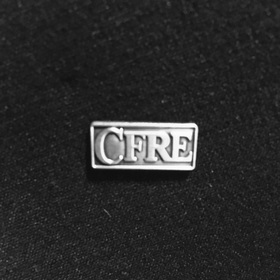 Twice in the last month, I’ve been asked for advice about becoming a Certified Fundraising Executive (CFRE). I’m sure some of you have thought about what it would take to earn this designation. I thought I would share my experience. Applying for the CFRE is actually very easy and user friendly. Visit www.cfre.org and create a log-in. From there, you can begin working on your application. I recommend doing this anytime you think about it. You can create a profile and compile the data you need whether or not you plan to apply soon. It doesn’t matter if you never actually apply. You can come back to it and track each conference right after you get back. This system will give you a clear idea of how close you are to meeting the requirements. It’s a bit of a myth that you need those little CFRE credit sheets from every conference you attend. As long as the session was sponsored by a reputable organization (Association of Fundraising Professionals, Council for the Advancement and Support of Education, Academic Impressions or others like them), you probably will just need the session details. You will need the title of each session, the name of sponsoring institution, and the date. Due to a recent change, all volunteer or service work will be counted under “Education” now. You also get points if you have an advanced degree. You will also need to produce evidence of professional practice (the time you have been a professional fundraiser) and professional performance, which can include dollars raised, management projects and communications projects. For dollars raised, if you are a campaign manager or annual giving, you get credit for dollars raised under your management. I was the campaign director for a completed building campaign, so I got credit for those dollars since I ran that campaign from the beginning. For the management projects, I submitted an inter-office “white paper” I wrote that outlined a plan to improve the way that development officers requested written proposals and recorded building naming opportunities. These projects required coordination across multiple divisions including advancement services, major gift officers, executive officers and communications staff. The CFRE software assigns the points as you enter the information and shows you clearly when you have a “green light” on a particular section. When you have been approved to apply on all sections, you will need to come up with a plan for paying the Exam Fee. Currently, for initial certification, the fee is $875. If you are a member of a participating organization (like AFP), it’s only $700. Most organizations will cover the cost if you express the interest early and include it in your budget request for that fiscal year. After you apply, your materials will be evaluated and if all is well, you will receive an "Approval to Test" notification. That test is a beast of a unique sort though, so I’ll save the information about the CFRE exam for another post. 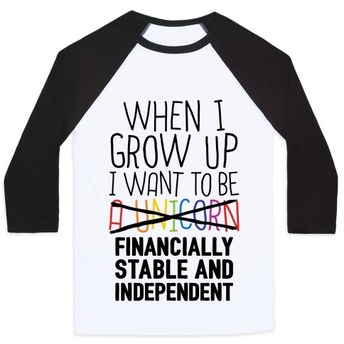 You never hear a kid say, “I want to be a fundraiser when I grow up”. Partly that’s because there’s no college major called “fundraising” and partly because children’s imaginations are captured the idea of what they will be doing. Most children have no idea what a professional fundraiser does. Young people are motivated to do something good in the world. Many have an interest in working for non-profits but they focus on the program side of things. Few think of fundraising as an exciting way to contribute to building good in our world. But the truth of it is that fundraising is an amazing career. Without fundraisers, many non-profits would struggle or cease to exist. Without fundraisers, the good that non-profit delivers would not be delivered. Those who benefit from those services and programs would go un-helped. Another thing for those starting their careers to keep in mind is that fundraisers make good living and we enjoy a little bit more job security than other positions because we can directly show that there is return-on-investment to our salaries. So, I talk about careers in fundraising all the time as a great option for young people. It’s rewarding personally and financially. There is much to be gained and much to contribute. |
Jessica Cloud, CFREI've been called the Tasmanian Devil of fundraising and I'm here to talk shop with you. Archives
July 2020
Categories
All
|


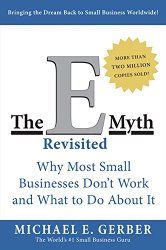
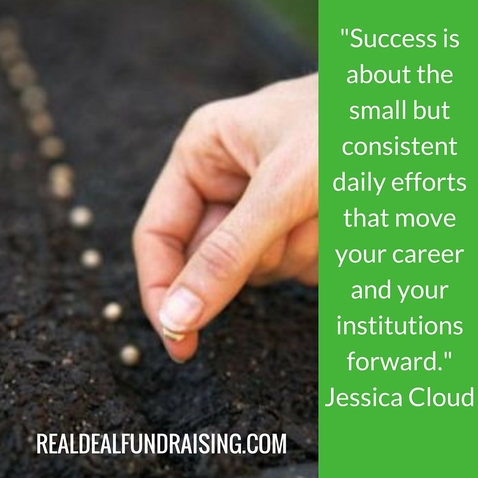
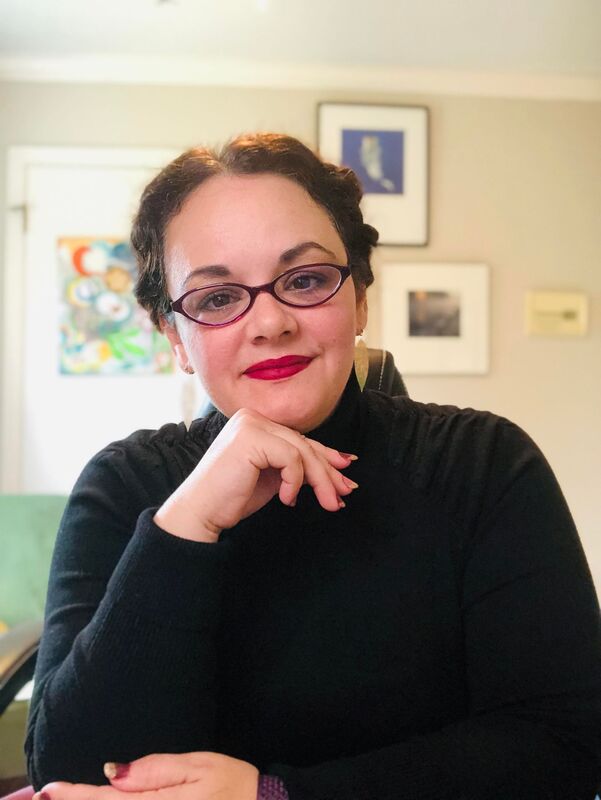
 RSS Feed
RSS Feed
